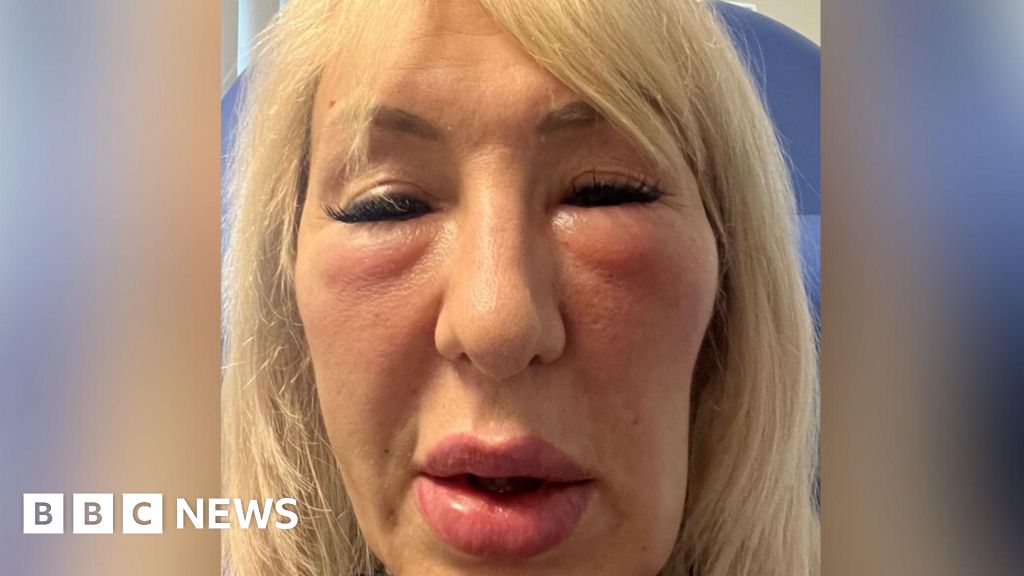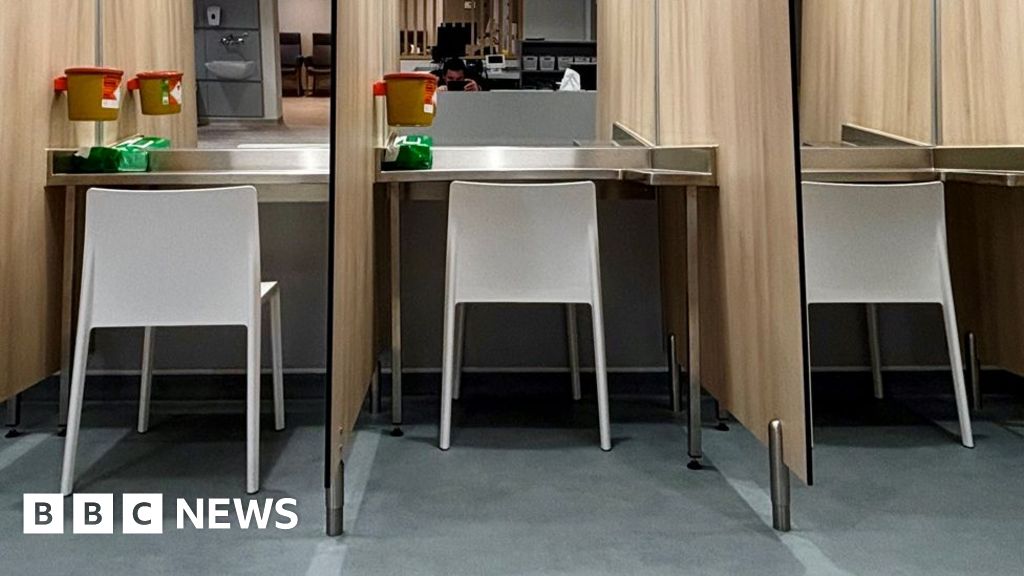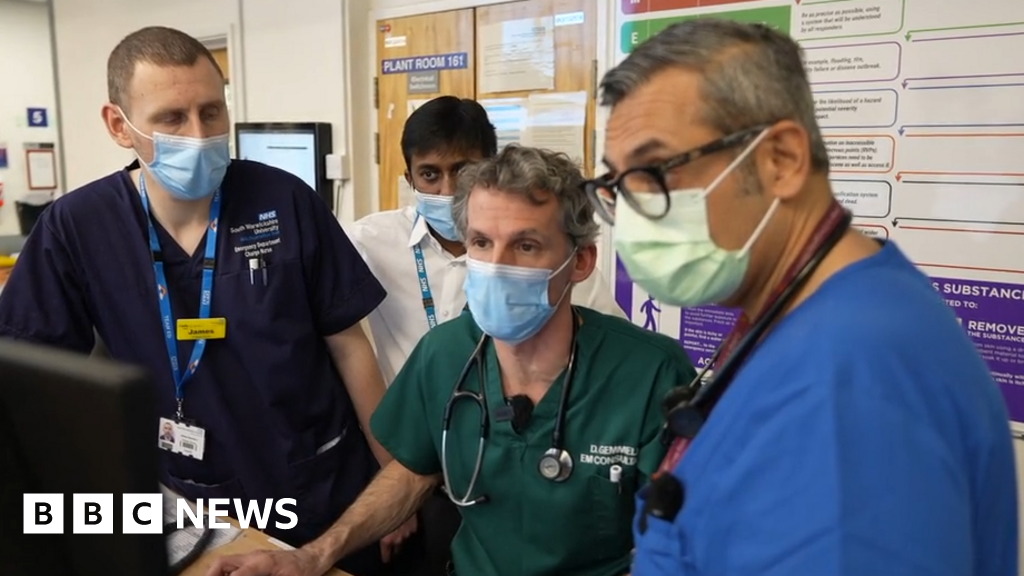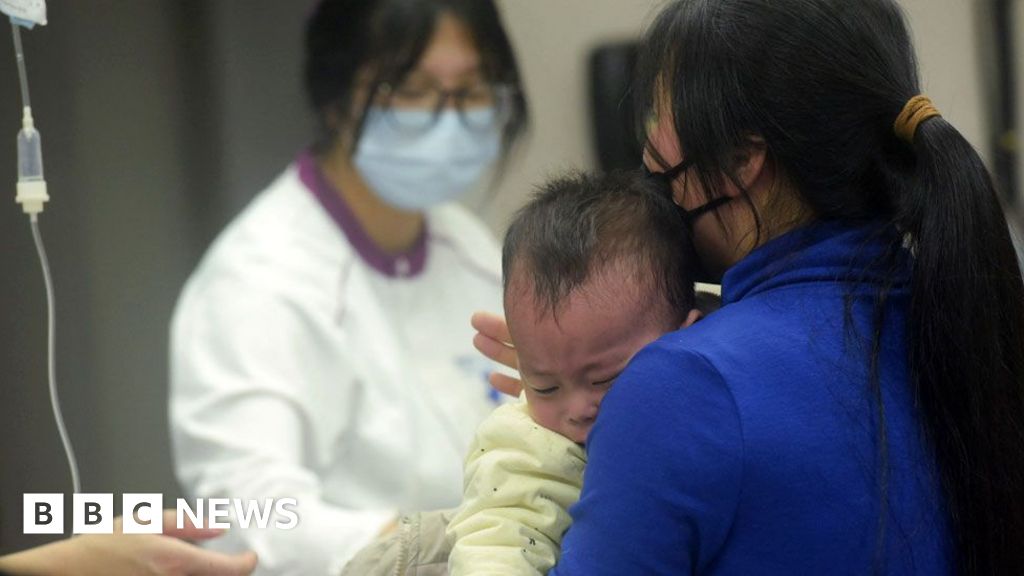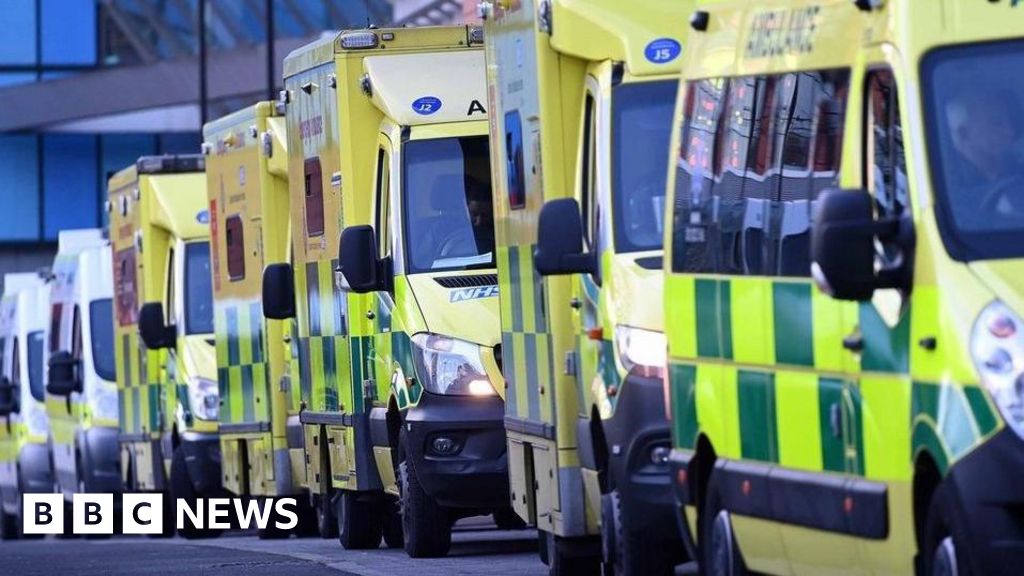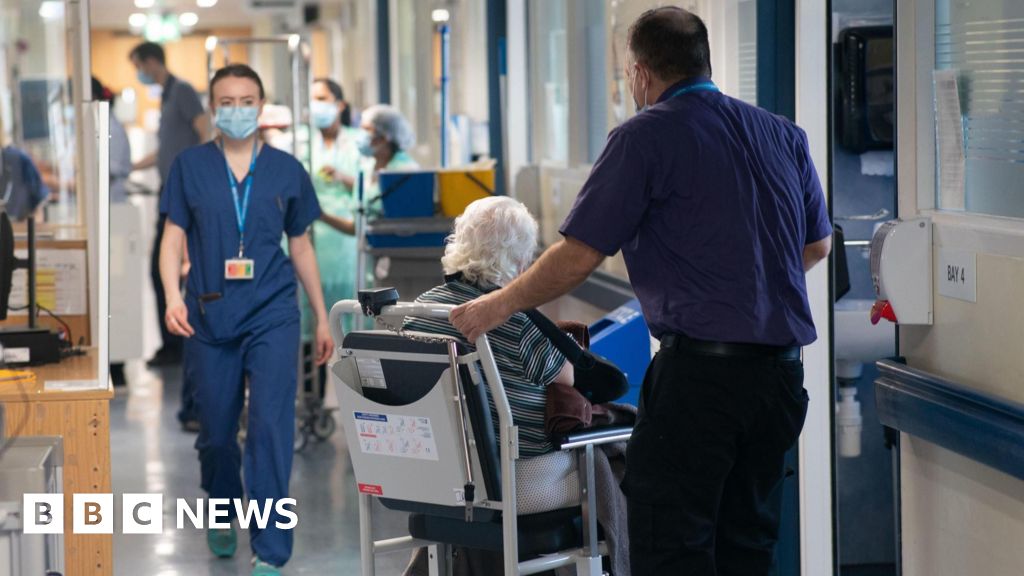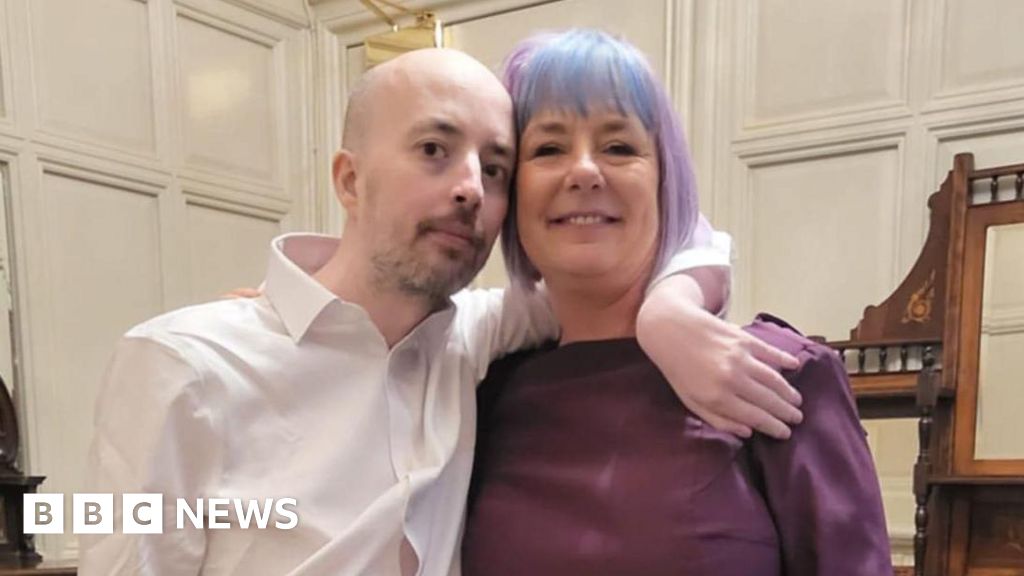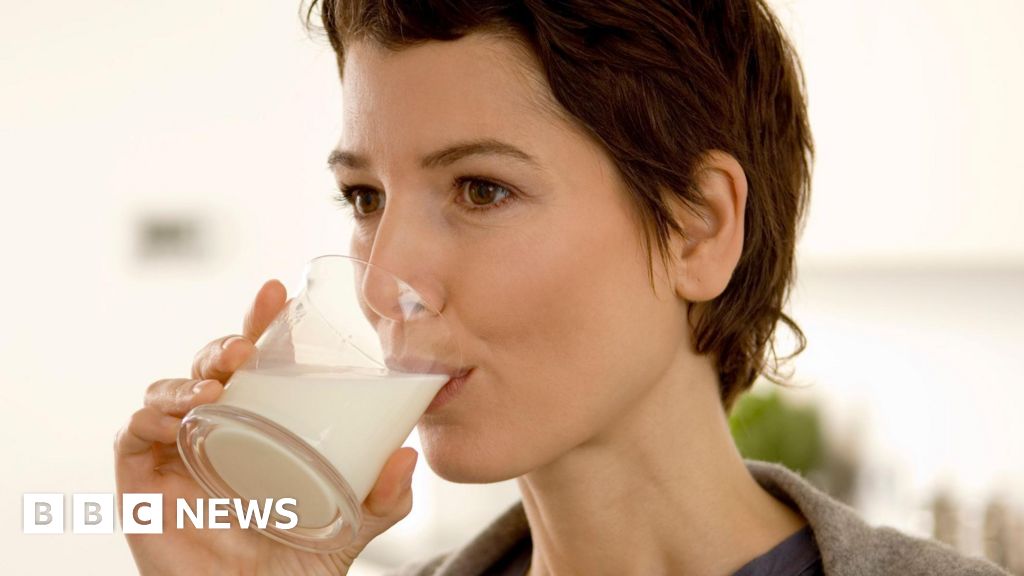Different perspective from cancer, says Glenn Campbell
By Glenn Campbell
Political editor, BBC Scotland
It was a beautiful day for a summer cycle through East Lothian. The sort of day where nothing could go wrong.
I was moving fast down a steep hill heading towards the village of Gifford for breakfast when I took a tumble.
The road surface was broken and I clipped a rough edge and skidded.
There was a split second of clarity. I could see exactly what was about to happen and that I was powerless to prevent it. The bike went one way and I went the other.
I fell hard, bounced and rolled across the tarmac. I came to a halt face down on the road, too injured to move to safety.
I knew the biggest danger I faced was being run over. I kept thinking: "If the next vehicle comes down the hill, the driver will struggle to see me and I will be a goner."
I was lucky. The first car on the scene came up the hill. The former police officer behind the wheel did spot me, stopped the traffic and called an ambulance.
I owe him and the others who came to my aid my sincere thanks.
Glenn was in the major trauma unit for a week after the cycling accident
I broke 10 ribs in this accident in June and was in the major trauma unit at the Royal Infirmary of Edinburgh for a week, where I received phenomenal care.
But little did I know that these injuries would be the least of my health problems.
Six weeks later, I was looking forward to getting back to work - but woke on the Saturday night clutching my left arm.
It was not painful but I felt a strong burning sensation. I could not walk or talk coherently.
It was as if I was drunk, although I had not had a drop of alcohol. Involuntarily, I bit down hard on my tongue and started bleeding from my mouth.
At first my wife, Claire, thought I was having a stroke. It turned out I was having an epileptic fit or seizure.
I had substantially recovered by the time the paramedics arrived and was making jokes as they bundled me off to hospital for checks.
A scan showed Glenn's broken ribs
Within a couple of days an MRI scan revealed a tumour on the right hand side of my brain. It was pressing on the part that controls movement on the left hand side of my body.
Tumours always seem to be compared in size to pieces of fruit. It is not uncommon to hear about someone having a tumour as big as a peach.
Mine was much smaller. Perhaps more akin to a large grape - but no less devastating for what it represents.
It's a real shock to be told that you have a serious life-limiting condition.
For about six weeks, the situation looked very bleak. The most likely scenario seemed to be that I had a glioblastoma - a fast growing cancerous tumour for which the average life expectancy after diagnosis is 12 to 18 months.
I could hardly believe it. I would probably be dead before I was 50 - assuming I could safely get through surgery to remove as much of the tumour as possible.
Glenn with his wife Claire Gardner the day before his brain surgery
I had to move quickly to update my will and dig out my life insurance to make everything as easy as possible for my family in case the operation went wrong.
The hardest thing was to tell my children Cameron, 20, and Katie, 17, what was happening to me. Getting through that without breaking down was a relief.
I was surprised to discover that I am not afraid of dying. It turns out my biggest fear is FOMO - the fear of missing out.
Missing out on growing old with my wife. Missing out on seeing my children complete their journeys into adulthood.
Missing out on their graduations, weddings and the arrival of any children they might have.
I told family and friends that I loved them and hoped for the best.
Bandaged up after undergoing surgery in August
The surgery was a success. My brilliant neurosurgeon at the Royal Infirmary of Edinburgh, Paul Brennan, and his team managed to get almost all of my tumour out, without damaging healthy tissue.
When I came round from five hours under general anaesthetic I was euphoric - overwhelmed to be alive and feeling ridiculously well.
I celebrated in the high dependency ward that night with a feast of cheese and biscuits.
I recovered quickly. They operated on a Thursday and I was home walking my dog on the Saturday - a timeline I would not have imagined possible.
The only way to find out exactly what they cut out was to send it for forensic examination.
The pathology report took a few weeks. That was actually fairly swift - but it felt like a very long time because every day you wait for a definitive diagnosis is a real strain.
Glenn was out walking his dog Ruadh two days after going through surgery
When I went in to hear the results from my consultant I was prepared for the worst but hopeful for a better outcome.
Once again, I was lucky. About as lucky as someone in my position can be.
I do have an incurable brain cancer. It is almost certainly what will kill me, but I am optimistic that need not happen for a long time yet.
I have a rare tumour called an oligodendroglioma, which tends to respond better to treatment than many other types.
Over the autumn, I had 33 blasts of radiotherapy. I started chemotherapy before Christmas and I should be having the second of six chemo cocktails with my Burns supper.
I have remained healthy and active throughout my treatment so far. I have been able to keep working, keep walking my dog and climb a few mountains.
Glenn near the summit of Mount Keen in October, during his radiotherapy
I am lucky to have supportive colleagues and management at BBC Scotland.
I don't want to pretend I have not experienced side effects.
I found radiotherapy very tiring. Chemotherapy has made me feel nauseous and fatigued.
All of this increases my risk of further seizures, which I am very keen to avoid. I manage this with medication and making plenty of time for rest.
This is frustrating for someone who likes to keep busy - but the prize for good behaviour is huge.
If this phase of my treatment is successful it should be possible to keep my tumour in check for some years to come.
Instead of worrying about dying from brain cancer, I can see the potential for it to give me a new lease of life.
In some ways that has already begun.
Near the summit of Schiehallion in November
I am spending more time with friends and family, who have humbled me with their love and support.
I am taking more time to appreciate simple pleasures, especially walking in Scotland's breathtaking landscapes.
I have decided to share my story in the hope that it might offer encouragement to others.
The cancer club is one that no-one wants to join but I have found its membership to be very supportive. I have drawn strength from those who have shared their experiences with me along the way.
I have also started a fundraising community called Brain Power to raise money for the charity, Brain Tumour Research.
It is working to establish its fifth UK research centre in Scotland - to scale up the work scientists are already doing at Edinburgh and Glasgow universities and help them progress promising new therapies into clinical trials.
This is important because according to Cancer Research UK, only four in 10 of those diagnosed with a cancerous brain tumour survive for a year or more.
Both Brain Tumour Research and the Brain Tumour Charity describe brain tumours as the biggest cancer killer in children and adults under the age of 40.
I am for defying the odds and for trying to improve them for the brain tumour patients that come after me.
Thinking back on my own case, I will never know for sure whether or not my tumour caused me to fall off my bike.
I am not convinced that it did but it is still possible the crash helped reveal my tumour earlier than might otherwise have been the case.
The accident has also left with me with some unfinished cycling business.
When my chemotherapy is finished, I would like to get back on my bike and retrace my route through the hills of East Lothian.
That could be a fitting way to celebrate the end of my cycle of cancer treatment, complete my ill-fated bike ride and finally enjoy that feast I promised myself in Gifford.
Maybe I'll have cheese and biscuits.
 (1).png)
 11 months ago
13
11 months ago
13
